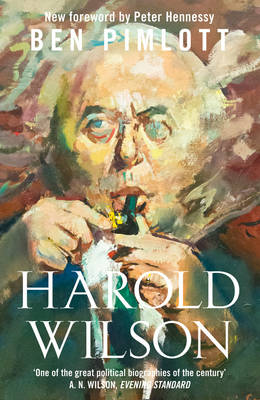“Citizen Clem: a biography of Clement Attlee, by John Bew (2017 “riverrun” paperback)
(a review by J.Wilmot)
It’s instructive to look back to the world and the achievements of Clement Attlee. He was the man who led the first majority Labour Government, and helped to change the face of a war-battered Britain.
Much to the surprise of the Tories (at least) was the scale of Labour’s victory. It was a clear rejection of Churchill’s vision of a post-war Britain. Constituencies that had never voted Labour before helped to swell Attlee’s majority – as did the “forces’ vote”, still scattered through war zones in different parts of the world.
THE WELFARE STATE:
Looking back, commentators tend to judge Attlee’s major achievement as being the establishment of the Welfare State. It was the central focus of Ken Loach’s documentary film, “The Spirit of ‘45” which was reviewed in the Clarion when it was released on DVD. He was able to track down a fair number of those who were able to experience those heady days when the Beveridge Report was adopted by Attlee’s government and transformed into our Welfare State.
Of course there was more to Clement Attlee than that – and he had plenty of other problems to grapple with in post-war Britain. And in many ways he was an unlikely figure to transform our society.
As John Bew, the author, points out Clement Attlee was born into a conservative (with a small “c”) family and this conservatism marked his early student years, when he studied Modern History at Oxford. But it was a developing social conscience that opened his eyes and led him into the Labour Party.
By the ‘thirties he had become leader of the party, travelling to Spain to give his support to the Republican cause in the bitter civil war (where he was photographed giving the “clenched fist” salute). When the coalition government was formed following the outbreak of war with Germany, he became deputy Prime Minister – and famously became Prime Minister when Labour trounced the Tories at the polls in 1945.
John Bew makes the point that Labour effectively put Churchill in power in the first place, by backing a vote of no confidence in Neville Chamberlain’s premiership. As for Attlee’s role as Deputy Prime Minister, there were complaints within his own party that he was too subservient to Churchill. Certainly, says Bew, Churchill wanted to keep Attlee as close as possible – and Attlee believed that co-operation was essential for the successful conduct of the war – particularly at those times when it seemed that our backs were against the wall.
Attlee’s reputation, even today, rests on the adoption of the Welfare State, with its crowning glory, the National Health Service, under the stewardship of Nye Bevan. Incidentally, Churchill’s response to it all was to declare that it might seem good on paper, but “we can’t afford it.”
“FROM THE CRADLE TO THE GRAVE”:
To enable the state to pay for it all, a period of austerity was imposed, including rationing which lasted through the Attlee years. But we did gain a society in which the state looked after its people “from the cradle to the grave”. And a mass housing drive was launched to replace those homes destroyed during the blitz, not to mention slum dwellings that were just not fit for purpose. In this, council homes were given top priority, including the mass construction of “prefabs” which became a familiar sight throughout the country.
“THE COLD WAR”:
But there were other points of policy which at the time (and perhaps even today) were more debatable. This was the era of the “Cold War”. Stalin had ceased to be our ally, “Uncle Joe”, in the fight against Nazism and had become instead the leader of a new threatening empire in eastern Europe. Those in the west were forced to take sides. In Britain, conscription (“National Service” as it was called) remained, and new frightening nuclear weapons were developed.
This, of course, caused new divisions on the Left, and fractured the unity created by the adoption of the Welfare State. Another point of contention that bubbled vaguely below the surface was Britain’s imperial past. In the post-war period, whole swathes of any world map would be below the surface was Britain’s imperial past. In the post-war period, whole swathes of any world map would be coloured in red, to mark out territories that were still part of the “British Empire”. Those of us still at school during those years just took it for granted. Others of course didn’t.
John Bew covers the controversy in his book, and suggests that any moves for Britain to divest itself from the trappings of empire moved very slowly. A case in point was that of India (once described as “the jewel in the empire’s crown”). Here some degree of independence had been promised as early as the 1930s – at least for “dominion status”.
DISILLUSION AMONGST THE MIDDLE CLASSES:
Of course, Attlee’s Government didn’t get whole hearted support – and Bew discusses the reaction of the middle classes (living in the fictional county of Barsetshire, popularised by the novelist Trollop).
It was the continuation of austerity that alienated them from Attlee’s Government. They rebelled against the controls and rationing (particularly when bread was rationed in 1946). Apart from the rationing, it was the loss of that elusive quality in life we call “choice”.
Of course in any class-based society there’s always a difference between the amount of choice that different strata of society may have (never truer than the situation we have today!). Certain elements fail to appreciate the old saying that “we’re all in the same boat” however much it may be true. As far as the Attlee government was concerned, the middle classes targeted three of his ministers in particular – Stafford Cripps (president of the Board of Trade), Hugh Dalton (Chancellor of the Exchequer) and John Strachey (Minister for Food). Those, in fact who were seen as presiding over the “Red Tape and Sealing Wax Office” and the “Ministry of General Interference”. No doubt the Daily Mail (not to mention the Express) had a field day. And it inspired the American poet, Orville Prescott, to pen the following poem which appeared in the New York Times:
“In Barchester all is not well,
The county people pine and sigh.
They wish the Government in Hell
And long for happier days gone by
When the gloom did not obscure the sky.1”
Only one verse is quoted here, but it does clearly express the sentiments involved!
One point that needs to be made is that the “austerity” imposed under Attlee’s Government was very different indeed from that many of us have to endure under our latter-day Tory regimes. Back then it was imposed to allow our Government to install a Welfare State that benefited all, and endured right through until Thatcher came to power.
All in all, whatever the criticisms that may be made of Attlee’s Government, he emerges in my opinion as one of our greatest Labour Prime Ministers (the other one being Harold Wilson).
As for Attlee, he served one full term of office, before winning the ensuing election by such a narrow margin that he was forced to the polls again in 1951 when the Tories were once again returned. But the Welfare State remained firmly rooted (and, no doubt, was accepted by the middle classes of Barsetshire).
JOHN WILMOT.
 It was Aneurin Bevan who was given the responsibility of Health Care (which he combined with the equally challenging role of Minister for Housing). He tackled the problems with energy and finally won over the majority of doctors and a pattern of a new unified Health Service began to emerge.
It was Aneurin Bevan who was given the responsibility of Health Care (which he combined with the equally challenging role of Minister for Housing). He tackled the problems with energy and finally won over the majority of doctors and a pattern of a new unified Health Service began to emerge. NHS? Not Out of Our Pocket!
NHS? Not Out of Our Pocket!
 “Harold Wilson” by Ben Pimlott, and published by Harper Collins – a review by John Wilmot for The Clarion.
“Harold Wilson” by Ben Pimlott, and published by Harper Collins – a review by John Wilmot for The Clarion.